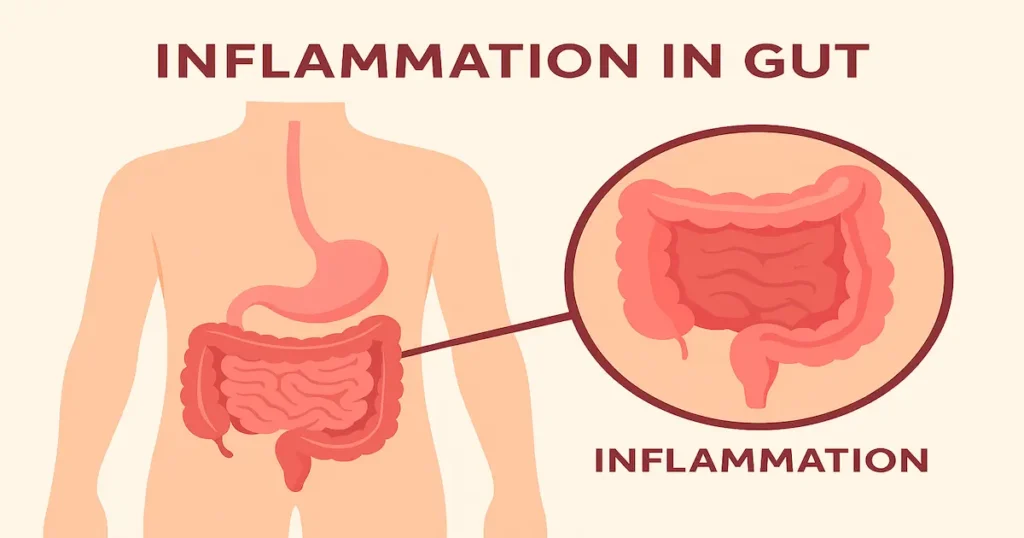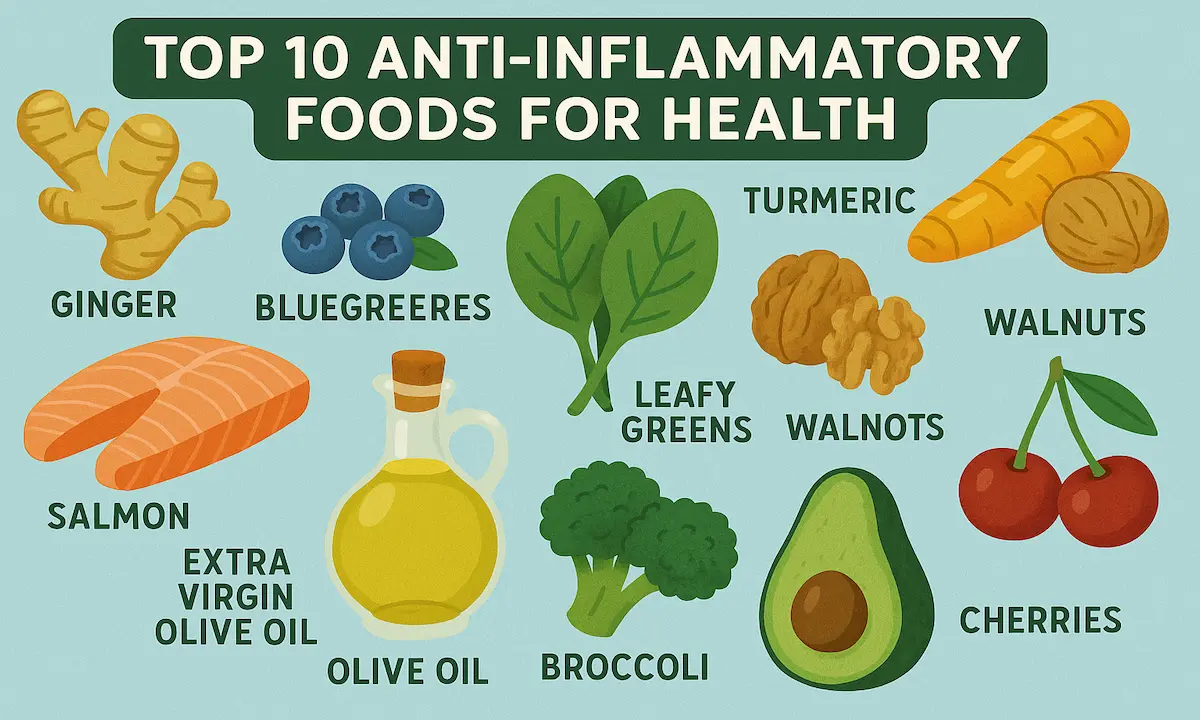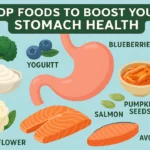Inflammation is your body’s natural response to injury or infection. But chronic inflammation can harm your health. It’s linked to heart disease, arthritis, and diabetes. The foods you eat can either fuel or fight inflammation.
Choosing anti-inflammatory foods can reduce pain, boost energy, and improve overall health. This article explores the best foods to combat inflammation and why they work. Whether you’re managing a chronic condition or want to feel better, this guide is for you.
It’s packed with simple, actionable advice to support your health. By the end, you’ll have a plan to eat smarter and reduce inflammation. Let’s dive into the top anti-inflammatory foods and start your journey to better health!
Why Inflammation Matters
Inflammation helps your body heal. It fights infections and repairs tissues. But when it becomes chronic, it causes problems. Chronic inflammation can lead to joint pain, fatigue, or serious diseases. Diet plays a big role.
Some foods trigger inflammation. Others calm it. Anti-inflammatory foods are rich in antioxidants, healthy fats, and nutrients. They reduce harmful inflammation. This improves your mood, energy, and long-term health. Choosing the right foods is a powerful tool.
Top Anti-Inflammatory Foods
These foods fight inflammation naturally. They’re nutrient-dense and easy to include in your diet. Here’s how they work.
1. Berries
Berries like blueberries, strawberries, and raspberries are anti-inflammatory superstars. They’re packed with antioxidants called anthocyanins. These reduce inflammation and protect cells.
Berries also have fiber, which supports gut health. A healthy gut lowers inflammation. Add berries to smoothies, yogurt, or oatmeal. Eat them fresh or frozen for their benefits. Avoid sugary jams or desserts.
| Berry Benefits | How to Include It | Tips |
|---|---|---|
| High in antioxidants | Add to smoothies | Choose fresh or frozen |
| Reduces inflammation | Top yogurt or oatmeal | Avoid sugary jams |
| Supports gut health | Eat as a snack | Wash thoroughly |
2. Fatty Fish
Salmon, mackerel, and sardines are rich in omega-3 fatty acids. Omega-3s reduce inflammation and support heart health. They also ease joint pain in conditions like arthritis. Aim for two servings weekly.
Read More: TimesHealthMag’s Top Nutrition Hacks for Wellness
Bake or grill fish for the best results. Avoid frying—it adds inflammatory fats. Canned fish in water is a budget-friendly option.
| Fish Benefits | How to Include It | Tips |
|---|---|---|
| High in omega-3s | Bake or grill salmon | Avoid fried fish |
| Reduces inflammation | Use canned sardines | Choose fish in water |
| Supports heart health | Add to salads | Aim for 2 servings weekly |
3. Turmeric
Turmeric contains curcumin, a potent anti-inflammatory compound. It reduces joint pain and swelling. It may also lower heart disease risk. Add turmeric to curries, soups, or smoothies.
Pair with black pepper to boost curcumin absorption. Use fresh or ground turmeric. Avoid overusing—too much can upset your stomach.
| Turmeric Benefits | How to Include It | Tips |
|---|---|---|
| Reduces inflammation | Add to curries | Pair with black pepper |
| Eases joint pain | Use in smoothies | Use sparingly |
| Supports heart health | Sprinkle on veggies | Fresh or ground works |
4. Leafy Greens
Spinach, kale, and Swiss chard are anti-inflammatory. They’re rich in antioxidants and vitamins. These fight inflammation and protect cells.
Greens also have fiber for gut health. Lightly cook greens to preserve nutrients. Add to salads, soups, or smoothies. Start with small portions if raw greens cause bloating.
| Greens Benefits | How to Include It | Tips |
|---|---|---|
| High in antioxidants | Add to smoothies | Lightly cook greens |
| Reduces inflammation | Use in soups | Start with small portions |
| Supports gut health | Make a light salad | Avoid heavy dressings |
5. Nuts
Almonds, walnuts, and pistachios are anti-inflammatory. They contain healthy fats and antioxidants. Walnuts are especially high in omega-3s.
Nuts also provide fiber and protein. Eat a small handful daily as a snack. Add to salads or oatmeal. Choose unsalted, raw nuts. Avoid sugary or heavily processed varieties.
| Nut Benefits | How to Include It | Tips |
|---|---|---|
| Healthy fats | Eat as a snack | Choose unsalted nuts |
| Reduces inflammation | Add to salads | Avoid sugary coatings |
| High in fiber | Mix into oatmeal | Limit to a handful |
6. Olive Oil
Extra virgin olive oil is a healthy fat. It contains oleocanthal, which acts like anti-inflammatory drugs. It supports heart health and reduces pain.
Use olive oil for cooking or dressings. Drizzle over salads or veggies. Avoid high heat—it can degrade nutrients. Choose cold-pressed, extra virgin varieties.
| Olive Oil Benefits | How to Include It | Tips |
|---|---|---|
| Anti-inflammatory | Use in dressings | Choose extra virgin |
| Supports heart health | Drizzle on veggies | Avoid high-heat cooking |
| Reduces pain | Cook at low heat | Store in a dark bottle |
7. Avocados
Avocados are packed with healthy fats. They contain antioxidants and fiber. These reduce inflammation and support digestion.
Also Visit: Oatmeal vs. Cream of Wheat: Which Is Healthier?
Avocados also help heart health. Mash into guacamole or spread on toast. Add to salads or smoothies. Eat in moderation due to high calories. Choose ripe but firm avocados.
| Avocado Benefits | How to Include It | Tips |
|---|---|---|
| Healthy fats | Make guacamole | Eat in moderation |
| Reduces inflammation | Add to salads | Choose ripe avocados |
| Supports digestion | Spread on toast | Store properly |
8. Green Tea
Green tea is rich in polyphenols. These antioxidants fight inflammation. Green tea also supports heart and brain health. Drink 1-2 cups daily. Avoid adding sugar—it can trigger inflammation. Brew fresh or use matcha powder. Limit intake if sensitive to caffeine.
| Green Tea Benefits | How to Include It | Tips |
|---|---|---|
| High in antioxidants | Drink 1-2 cups daily | Avoid added sugar |
| Reduces inflammation | Use matcha in smoothies | Limit if caffeine-sensitive |
| Supports heart health | Brew fresh | Choose high-quality tea |
9. Broccoli
Broccoli is a cruciferous vegetable. It’s high in antioxidants and fiber. It reduces inflammation and supports detoxification.
Sulforaphane in broccoli fights inflammation at the cellular level. Steam or roast broccoli. Add to stir-fries or salads. Avoid overcooking—it reduces nutrients.
| Broccoli Benefits | How to Include It | Tips |
|---|---|---|
| High in antioxidants | Steam or roast | Avoid overcooking |
| Reduces inflammation | Add to stir-fries | Eat fresh or frozen |
| Supports detoxification | Use in salads | Pair with olive oil |
10. Dark Chocolate
Dark chocolate (70% cocoa or higher) is anti-inflammatory. It contains flavonoids that reduce inflammation. It also supports heart health.
Eat a small square daily. Avoid milk chocolate or sugary varieties. Pair with berries or nuts for a healthy treat. Check for minimal added sugar.
| Chocolate Benefits | How to Include It | Tips |
|---|---|---|
| High in flavonoids | Eat a small square | Choose 70% cocoa or higher |
| Reduces inflammation | Pair with berries | Avoid sugary varieties |
| Supports heart health | Use in desserts | Check ingredients |
Foods to Avoid for Low Inflammation
Some foods trigger inflammation. Sugary foods like soda and candy spike blood sugar. This fuels inflammation. Processed foods have additives that harm the gut. Fried foods contain unhealthy fats.
Refined carbs like white bread lack nutrients. They cause inflammation spikes. Limit red meat and processed meats. They’re high in saturated fats. Alcohol in excess also increases inflammation. Choose whole foods instead.
| Foods to Avoid | Why They Harm | Alternatives |
|---|---|---|
| Sugary foods | Spike blood sugar | Fresh fruit |
| Processed foods | Contain additives | Whole grains |
| Fried foods | Unhealthy fats | Baked or grilled foods |
| Refined carbs | Lack nutrients | Quinoa, brown rice |
| Excess alcohol | Increases inflammation | Herbal tea, water |
Lifestyle Tips for Reducing Inflammation
Diet is key, but habits matter too. Here are tips to lower inflammation:
Eat Smaller Meals
Large meals can stress your body. They cause blood sugar spikes. Eat 4-5 small meals daily. This stabilizes energy and reduces inflammation. Space meals evenly.
Stay Hydrated
Water flushes toxins and supports digestion. Dehydration can worsen inflammation. Drink 8-10 cups daily. Sip water throughout the day. Herbal teas are also great.
Exercise Regularly
Physical activity reduces inflammation. It boosts circulation and lowers stress. Aim for 30 minutes daily. Walking, yoga, or swimming are ideal. Avoid overtraining—it can increase inflammation.
Manage Stress
Chronic stress fuels inflammation. It raises cortisol levels. Try meditation or deep breathing. Yoga or journaling also helps. Find what calms you.
Get Enough Sleep
Sleep reduces inflammation. It allows your body to repair. Aim for 7-8 hours nightly. Avoid screens before bed. Keep a consistent sleep schedule.
| Lifestyle Tip | Benefit | How to Do It |
|---|---|---|
| Smaller meals | Stabilizes blood sugar | Eat 4-5 small meals |
| Stay hydrated | Flushes toxins | Drink 8-10 cups water |
| Exercise | Reduces inflammation | 30 min daily activity |
| Manage stress | Lowers cortisol | Try meditation or yoga |
| Get sleep | Aids repair | Aim for 7-8 hours |
Common Inflammation-Related Issues and Food Solutions
Inflammation can cause specific problems. Foods can help manage them. Here’s how:
Joint Pain
Chronic inflammation causes joint pain. It’s common in arthritis. Fatty fish, turmeric, and nuts reduce joint inflammation. Avoid processed foods and sugar. Eat omega-3-rich foods regularly.
Fatigue
Inflammation can make you feel tired. Berries, green tea, and olive oil boost energy. They fight inflammation at the cellular level. Avoid sugary drinks—they cause energy crashes.
Heart Issues
Inflammation increases heart disease risk. Fatty fish, olive oil, and dark chocolate support heart health. They reduce arterial inflammation. Limit red meat and fried foods.
Digestive Problems

Inflammation can harm your gut. Leafy greens, broccoli, and avocados support digestion. They reduce gut inflammation. Avoid processed foods and artificial sweeteners.
| Issue | Helpful Foods | Foods to Avoid |
|---|---|---|
| Joint pain | Fatty fish, turmeric | Processed foods |
| Fatigue | Berries, green tea | Sugary drinks |
| Heart issues | Olive oil, salmon | Red meat, fried foods |
| Digestive problems | Greens, avocados | Artificial sweeteners |
How to Build an Anti-Inflammatory Diet
An anti-inflammatory diet is simple. Focus on whole, nutrient-dense foods. Include a mix of antioxidants, healthy fats, and fiber. Plan meals to avoid processed foods. Here’s a sample daily menu:
Sample Daily Menu
- Breakfast: Oatmeal with blueberries and walnuts.
- Snack: Sliced avocado with a sprinkle of turmeric.
- Lunch: Grilled salmon, spinach salad with olive oil dressing.
- Snack: Dark chocolate square and a handful of almonds.
- Dinner: Roasted broccoli, quinoa, and baked chicken.
- Evening: Green tea or turmeric tea.
| Meal | Foods | Benefits |
|---|---|---|
| Breakfast | Oatmeal, blueberries | Antioxidants, fiber |
| Snack | Avocado, turmeric | Healthy fats, anti-inflammatory |
| Lunch | Salmon, spinach | Omega-3s, vitamins |
| Snack | Dark chocolate, almonds | Flavonoids, healthy fats |
| Dinner | Broccoli, quinoa | Antioxidants, fiber |
| Evening | Green tea | Polyphenols |
Additional Tips for Long-Term Health
Consistency is crucial. Rotate the foods above for variety. This ensures a range of nutrients. Experiment with cooking methods. Steaming or roasting preserves nutrients. Keep a food diary to track triggers.
Note what worsens inflammation. Avoid late-night eating—it can disrupt sleep and increase inflammation. Stay active to boost circulation. Even a short walk after meals helps.
Hydration and Timing
Water reduces inflammation. It supports detoxification and digestion. Drink 8-10 cups daily. Avoid large amounts during meals. This prevents diluting digestive enzymes. Sip water steadily. Time meals evenly to stabilize blood sugar.
Mindful Eating
Eat slowly to aid digestion. Chewing thoroughly reduces inflammation. Avoid distractions like phones during meals. Focus on food’s taste and texture. This improves nutrient absorption.
Supplements
Food is the best source of anti-inflammatory compounds. Supplements like omega-3s or curcumin may help. Consult a doctor first. They’ll recommend safe doses. Avoid relying solely on supplements.
When to See a Doctor
Diet helps manage inflammation. But some signs need medical attention. See a doctor if you have:
- Persistent joint pain or swelling.
- Chronic fatigue or weakness.
- Chest pain or shortness of breath.
- Severe digestive issues.
These could indicate arthritis, heart disease, or other conditions. A doctor can diagnose and guide you.
FAQs
What are the best anti-inflammatory foods?
Berries, fatty fish, and turmeric are top choices. Leafy greens, nuts, and olive oil also help. They’re rich in antioxidants and healthy fats.
Can sugar cause inflammation?
Yes, sugar spikes blood sugar. This triggers inflammation. Limit candy, soda, and processed desserts. Choose fruit for sweetness.
How does exercise reduce inflammation?
Exercise boosts circulation and lowers stress. It reduces inflammatory markers. Aim for 30 minutes daily. Walking or yoga works well.
Are supplements as good as food for inflammation?
Food is better than supplements. Berries, fish, and greens provide natural nutrients. Supplements can help but consult a doctor first.
How can I reduce joint pain with diet?
Eat fatty fish, turmeric, and nuts. They reduce joint inflammation. Avoid processed foods and sugar. Eat omega-3s regularly.
Is coffee inflammatory?
Moderate coffee may reduce inflammation. It has antioxidants. But excess caffeine can stress your body. Limit to 1-2 cups daily.
How often should I eat anti-inflammatory foods?
Include them in every meal. Aim for a variety of berries, greens, and healthy fats. Small, frequent meals stabilize blood sugar.
Conclusion
Anti-inflammatory foods improve your health. Berries, salmon, and turmeric are powerful choices. Leafy greens, nuts, and olive oil help too. Avoid sugary, processed, or fried foods. Eat small, frequent meals and stay hydrated.
Exercise and manage stress. Use the tables to plan your diet. See a doctor for persistent issues. These steps will reduce inflammation and boost your well-being!












